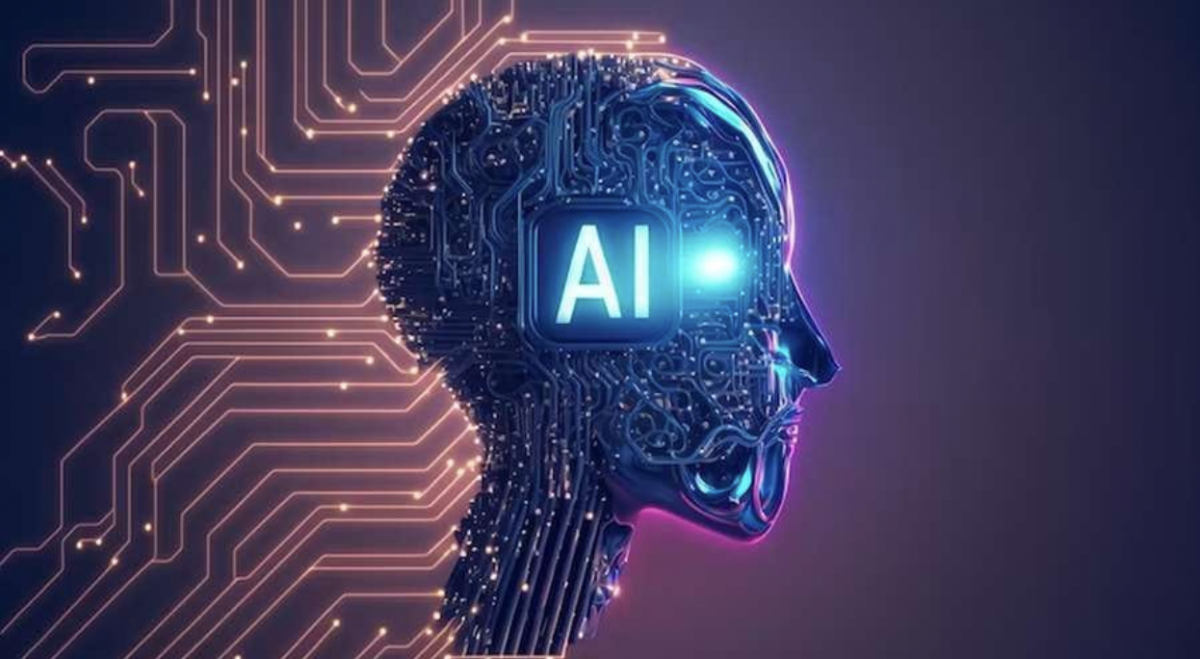As man-made resources advance every single day, so do outside forces. to the age-old question: Do you believe the world around you? Do you trust the people, sources, places, or even foods that you see every day? These questions aren’t as simple as they may have once been.
The rise of Artificial Intelligence, or AI, has always been expected to change the world, but few may have expected just how drastic that change could be. But in a world full of deep fakes, fake articles, and the ability to mimic anybody’s voice to say absolutely anything, it’s grown from a dream to a nightmare.
An estimated 28% of the human population fully trusts AI, while another 41% just generally accepts it. However, the number of people beginning to fear artificial intelligence is beginning to increase.
Although it has become a daily part of life, for some, nobody knows for sure that Artificial Intelligence is a solution to the struggles of human intelligence–an approaching problem. Here, you will see the nature of technology, the meteoric rise of it, and the effects that it has on the world today.
According to Will Henshall: “Much of the progress of the last 70 years has been a result of researchers training their AI systems using greater computational processing power, often referred to as “compute”, feeding the systems more data, or coming up with algorithmic hacks that effectively decrease the amount of compute or data.”
We can agree that people always had big expectations for advancement in technology. A great example of this is in the famed ‘Back to the Future 2,’ which came out in late 1989, when the main characters travel to 2015, only to see flying cars. And obviously, unless you were born tomorrow, or you don’t have eyes, you would know that this isn’t true.
But as more time passed, people became more realistic with their expectations. That is until they didn’t have to.
With the resounding majority focusing on the negative effects of AI, many people forget about the good things that it does for people.
According to an article posted by Western Governer’s University: “If you’ve used a self-service kiosk to check in before a flight, typed into a search bar and been given suggested keywords, or even switched the cruise control on during a long road trip, you’ve benefited from AI.”
Later in the same article, it’s stated that AI has been used for medical progression, research/data analysis, repetitive tasks, and so on.
A primary concern lies in the exacerbation of social and economic disparities, as AI-driven automation threatens traditional job sectors, potentially leaving a considerable portion of the workforce unemployed.
The pervasive collection and utilization of vast amounts of personal data for AI algorithms raise profound privacy concerns, with the potential for surveillance overreach and unauthorized access to sensitive information. Moreover, the inherent biases present in training data can lead to discriminatory outcomes, perpetuating societal inequalities.
The accelerated pace of AI development also outpaces regulatory frameworks, leaving a void in oversight and accountability. As AI systems become increasingly autonomous, ethical dilemmas emerge, ranging from the use of autonomous weapons to decisions with significant moral implications, raising questions about the adequacy of current ethical standards to guide AI advancements responsibly.
(These three paragraphs of negatives were written by AI.)
Education is essential for children and adults of all ages, but as time passes, AI is being used more than ever in the classroom. Examples of such include tutoring, adaptive learning, and above all, cheating.
According to Computer Science Teacher Sam Volpenhein: “I think it makes more sense to think more carefully about the things we’re asking kids to do, and then encourage them to use them in ways that are useful. It’s like how a pencil at one point was a new technology.”
AI is very commonly used by students to cheat on tests and other assignments, but as AI has evolved, so have tools to detect it. However, these AI detectors will recognize human writing as AI due to common writing patterns. Yes, AI is used to recognize AI to help us.
Although AI can detect cheating, it shouldn’t be able to detect or replicate human emotions, or so you would think. Not only is AI capable of making their own digital human replicants, but they’re able to replicate said emotions.
Artificial Intelligence has many practical applications but is a very dangerous technology due to its ability to generate realistic images and videos as well as being able to replicate people’s voices. People are worried about AI being used to fake videos of people as well as falsifying human acts.

With how advanced AI has become in recent years, we watch it continue to develop at a faster and faster pace.





